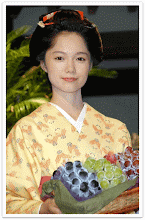Last night we attended the 2016 AFI Film Festival screening of Studio Ghibli's The Red Turtle at the Egyptian Theater in Hollywood. This much anticipated film from Studio Ghibli was the first non-Japanese film they produced by Belgian-Dutch director/animator Michael Dudok de Wit in a French-Japanese collaboration. Right from the get go we are introduced to the sounds of a dreadful storm on the high seas where a shipwrecked man struggles to stay afloat in the walls of water of which only the strong can survive. Going into his you know this will be a story of survival and there will be hardships. Studio Ghibli founder Hayou Miyazaki loves powerful scenes of nature for his backdrops and for this project Dudok de Wit does deliver. So early on this film scores very high on a technical level with incredible hand drawn animation.
No sooner than our castaway acclimates to his new circumstances on a small uninhabited tropical island, he immediately seeks to escape it. You'll note that he makes no effort to build a shelter or collect rain water but does make a minor effort to find food. This struck us as odd. In order to escape an island, you'll need provisions and good preparation but our castaway makes none of these necessary steps for survival. Instead, he builds a raft and tries to escape with no delay. No sooner than he is into open waters, his raft is destroyed by a massive red sea turtle. The man has no choice but to return back to the island. He will make two more attempts to flee by raft but will be thwarted by the same turtle marooning him to his fate back on the island. Out of frustration, the man gives into despair and flights of fantasy. So far so good right?
Up until this point, Dudok de Wit's film is firing on all cylinders living up to the high standards that is Studio Ghibli's well earned reputation. You have nature, struggle, and the human condition following a well envisioned story arc audiences who grew up on Robinson Caruso or had seen Tom Hanks in Castaway will be well familiar with. But here is where the story goes into a direction we had trouble buying. As our castaway attempts to build his fourth raft to escape, the red turtle comes ashore. Out of rage, the man turns the turtle up onto his back and kills him. This we get. What we don't get is why a half starved man would not attempt to cook the turtle and eat it. This made no sense. Instead, he has a crisis of conscious and decides to administer water in hopes of reviving the dying turtle but it is too late. Prior to this we see the man suffering from hallucinations. The film only gives you partial clues that he is losing his mind. Now we find a woman lying unconscious in the shell of the turtle. At first there is an uncomfortable distance and then romance.
As time goes on, the man forms a bond with this mysterious woman who exchanges no dialog with him. They eventually have a son together and the find happiness on the island. You want desperately want to believe this. You want this film to work. This man has suffered so much you root for him and his little family. But in the end, it is all a lie and a third of the audience left before Dudok de Wit opened the floor for the post film Q&A. I was upset and wanted an answer so we stuck around. Dudok de Wit described getting that phone call from Studio Ghibli to produce a full feature film as a "Opportunity of a Lifetime." There we agree. But what he chose to do next looked like an ambitious animated film with powerful themes, excellent animation, and everything you would expect from a Studio Ghibli film only to be ruined by the conclusion of the story arc. Instead of giving you hope, Dudok de Wit gave you a pretentious French Art Film that left you feeling empty. In Dudok de Wit's own words, he did not have a story but a concept. So far so good. He described how the castaway theme has been popular over the last two centuries. Check. But instead of redemption he chose to bum us all out and go with a sad ending you had wished he had avoided. Only Rod Serling was able to successfully pull such a story line off in his remake of a short French Film on his Twilight Zone episode titled An Occurrence at Owl Creek Bridge. But there, you know it's all fantasy. It's a hard task to pull off and Dudok de Wit went this French Art Film route and potentially squandered an Opportunity of a Lifetime. We would have went with a different ending that gave both redemption and hope but American Mishima did not get the call from Studio Ghibli, Michael Dudok de Wit did so there you have it. Perhaps we are wrong about this bold experiment but this anger we woke up with the morning after says no. As we had previously mentioned, The Red Turtle scores highly on a technical level but fails us on a story level. Only you the audience will have final say at the box office. This has just been one man's review. We are sure Studio Ghibli will hope you'll be more generous But see it for yourself and then you decide.

























No comments:
Post a Comment